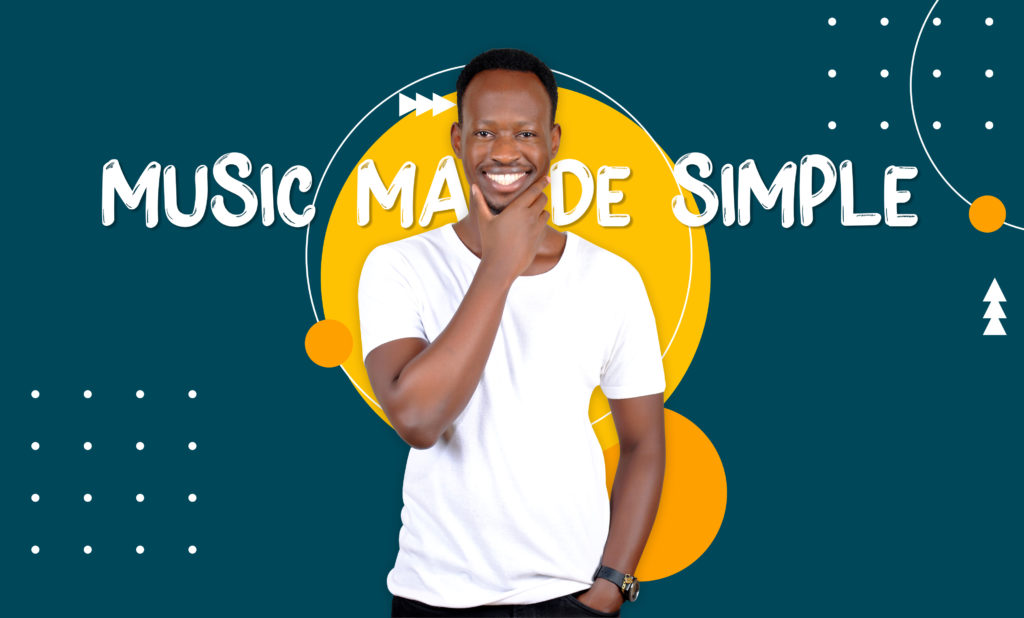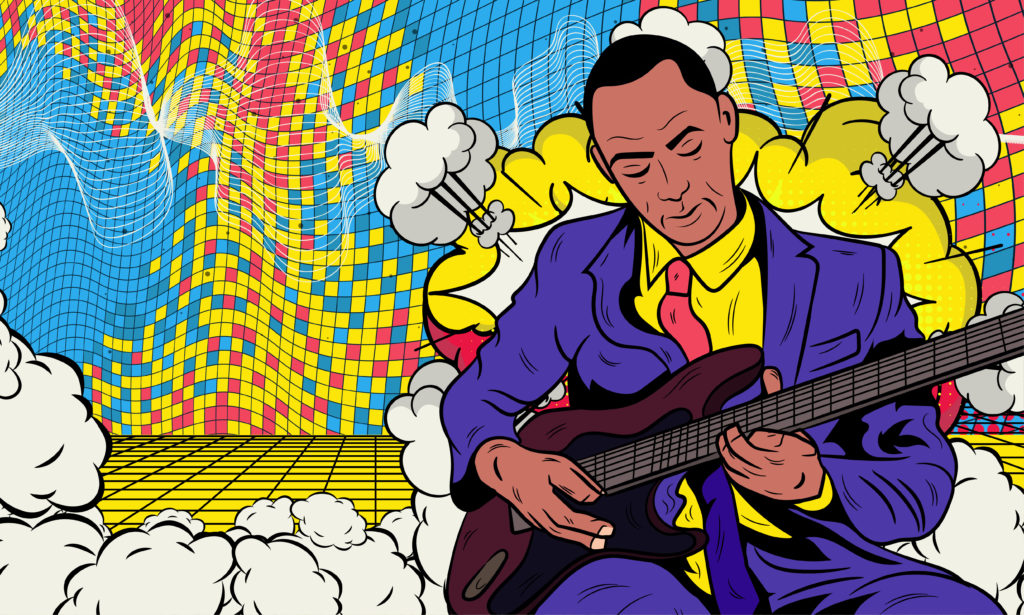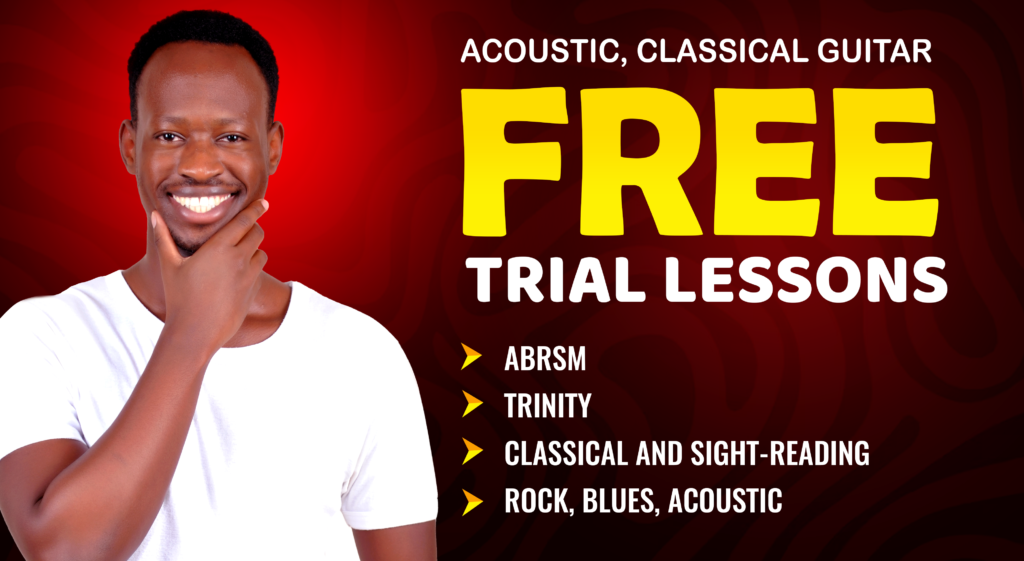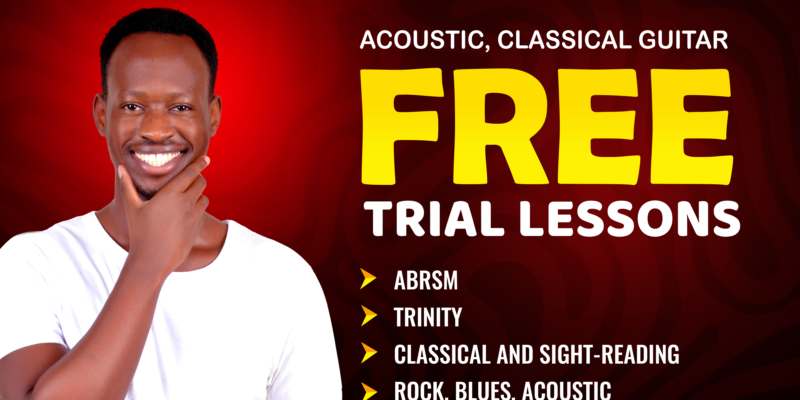“If your goal is to learn to play a musical instrument then no, you are NOT too old to learn. I repeat – You are not too old to learn a musical instrument!” – Daniel Kaze
* * *
HI Daniel – great to connect with you! To introduce things, how long have you been playing guitar, and what style do you specialise in?
I have been playing guitar for almost 13 years and I’ve been teaching for 7 years. I completed my Grade 8 ABRSM Classical exam and additionally, I have a Grade 5 certificate in Saxophone. I did Grade 3 in my first year playing the saxophone, then Grade 5 in the second. I have an affinity for musical instruments but decided to focus my efforts on the guitar.
Was there a particular artist or performer who first inspired you to pick up the guitar?
I had two influences:
The first was Bob Marley. I just wanted to learn how to play his songs.
The second was two friends of mine. They began playing guitar in Year 9 (Age 14) and got really good by the time they were in Year 11 (Age 16). I then thought, maybe I could try that.
How long have you been teaching, and what ages do you typically work with?
I have different types of students:
The first group of students are typically trying to complete their ABRSM or Trinity Classical guitar exams. They are aged 7 – 13. However, it is possible to do these exams even at an advanced age, it’s just that most of my students that do these exams are typically school-going age.
The second group of students want to learn to play their favourite songs. Sometimes they will send me a song and ask me to send them a tutorial video and other times, we will do lessons. These students vary in age, with my oldest being 45 but it is possible to learn guitar even after the age of 45.
Lastly, I teach students how to listen to a song and figure it out by ear. This is useful particularly for any students that may want to learn Jazz guitar later on.
What does the first lesson from you entail in terms of structuring things to cover all the right
aspects of playing?
Most people these days start learning the guitar on YouTube. This is great because it makes it easier to learn the guitar. However, a lot of them come to the lessons with fragmented knowledge so I start by assessing their abilities by asking them to play what they have learnt so far. I then ask them who their favourite artists are. By doing this, I achieve two things –
- I now know the gaps in their knowledge
- I can fix those gaps by teaching them the songs of their favourite artists
After the lesson, I will send my student a schedule of things to learn and this focusses us going forward. I will also send them a tutorial for a song that I want them to learn, in time for the next lesson.
How much of what you teach is theory and / or practical?
I start by teaching the student their favourite songs. This is useful because:
- It’s fun. We learn better when we’re having fun
- They signed up for lessons so that they can learn to play their favourite songs
- I am not a fan of learning techniques in an abstract manner especially with a new
student. For someone starting the guitar, the best way to learn technique, whether
that’s strumming or finger-picking, is with their favourite songs. They are more
motivated to practise and it’s contextualised i.e. they are learning to fingerpick so they
can play the finger-picking pattern in the song. It’s relevant
So to answer your question, in the beginning, it’s mostly practical and over time, I then use the students’ favourite songs to then teach theory for example, the number system.

You offer help to students who are completing their ABRSM and Trinity Exams – why did you choose to tackle these educational formats?
I chose to help students that are preparing for ABRSM and Trinity exams because, growing up, I struggled with reading music properly. In school, I struggled to grasp the traditional methods, and it took me a while to figure out how to learn effectively. Over time, I dove into books and explored different learning techniques until I found what worked best for me. Now, I want to pass that knowledge on to my students.
I believe these exam systems provide a structured and measurable way to track progress, and I enjoy guiding students through them using the methods that helped me succeed
You offer four free trial lessons, which is practically unheard of in the music world. In my view this is a great way to highlight your own faith in your ability to connect with and improve a student’s playing. What made you choose to offer these free lessons?
So I must start by stating my offer:
4 free trial lessons to decide whether you like my lessons then, $50 per month (I give a month of weekly lessons for the low price of $50). So that means you get 4 – 5 lessons (depending on the number of weeks in the month) for $50.
What made me choose to offer these free lessons? Honestly, when I was just starting out with my guitar teaching, I wanted to find a way to give back and help people get started without any pressure. It felt like a win-win—by offering something valuable for free, I could build trust with new students while they got a great deal on quality lessons. It was a way for everyone to benefit!
As a part time guitar teacher myself, I admire the approach of reinforcing how it is never too late to learn to play an instrument. The key is to practise consistently, and the rewards are limitless. I often get asked if you can be too old to learn the guitar. Is that something that you hear quite often?
Oh yes! Am I too old to learn? I hear this question so much and so I will attempt to answer it once and
for all
If your goal is to develop perfect pitch, which is the ability to hear a note and say whether it’s a “G” or a “B Flat,” then yes, it may be too late for you. This seems to be a skill that is developed at a young age. But note that:
- Most of your favourite musicians don’t have perfect pitch
- Most musicians develop something called relative pitch
- Perfect pitch seems more like a cool party trick than anything else
- You can still develop your ear without having perfect pitch
- Not having perfect pitch is not an obstacle to learning to play an instrument and like I said,
most of your favourite musicians don’t have it. - And of musicians that start at a very young age, some may still not develop perfect pitch. It
seems to be something that some people uniquely develop. More studies need to be done in
order to understand why.
If your goal is to learn to play a musical instrument then no, you are NOT too old to learn. I repeat – You are not too old to learn a musical instrument! A lot of people in nursing homes take up musical instruments and not only are they amazed at how easy it is to learn an instrument, but they also wish that they hadn’t placed age limitations on themselves and would have learnt sooner. Please don’t make the mistake of thinking that you’re too old to learn something.
Music is not like sports or gymnastics, you can learn it at any age, as long as you’re willing to set aside time to practise consistently (30mins to 1 hour a day).
How long does it typically take a new student to progress from basic to intermediate playing under your guidance?
The answer that we usually give to this question is that it depends on how much one practises. But that’s not the answer that people are typically looking for. I have found that, practising a minimum of an hour a day and targeting weaknesses, students can expect to be at an early intermediate level in a year, and at an intermediate level in 2 years.

Is there anything else we should know?
Yes, I would like to talk about the type of person that would benefit from my lessons:
1. Exam students – As I mentioned earlier, I teach students completing their ABRSM and Trinity exams. It is quite difficult to complete the required material within the space of a year, before doing the exam. I’ve found that time management and targeting weaknesses makes the process a lot easier and makes the goal achievable. Students are often surprised when they achieve a Merit or a Distinction because they felt that it was out of their reach but it was simply because they were using inefficient learning and practising methods.
2. Musicians – For the punk-rock guitarist, all you need is 3 chords and the truth. However, many will be surprised to learn that The Strokes’ Albert Hammond and Julian Casablancas were still taking guitar lessons while working on Is This It. Even the incomparable Michael Jackson still took singing lessons long into his career. Musicians should always look for ways to improve their craft and with my lessons, I can help musicians reach their goals. By listing their influences, we can create a practice schedule that will teach them what to learn in order to reach their specific guitar goals. For example, if a student says they want to learn to play like Jimi Hendrix, I will create a schedule that teaches them the things that are specifically relevant to that very goal. I won’t teach them Drop voicings and Jazz soloing, for example.
3. Self-teaching guitarists – In the internet age, almost anything can be learnt on YouTube. Like I said, this is great because it is so much easier to learn how to play the guitar. However, with this easy access two major problems arise:
3.1. Information overload – Information is not organised in a systematic manner. Students can often play a guitar solo without knowing all the basic open chords and basic theory. I help organise information in a way that makes sense. My knowledge helps them avoid going down the internet rabbit holes and falling for flashy thumbnails. Additionally, I help connect all their knowledge into a cohesive whole.
3.2. Tailoring – A YouTube teacher may be good, but he or she has no way of knowing the specific problem that the person watching the video is facing. Taking lessons allows the teacher to identify weaknesses and reduce time spent avoiding weaknesses or learning unnecessary skills.
* * *
Book your online guitar lesson or message Daniel Kaze exclusively via Fiverr.


